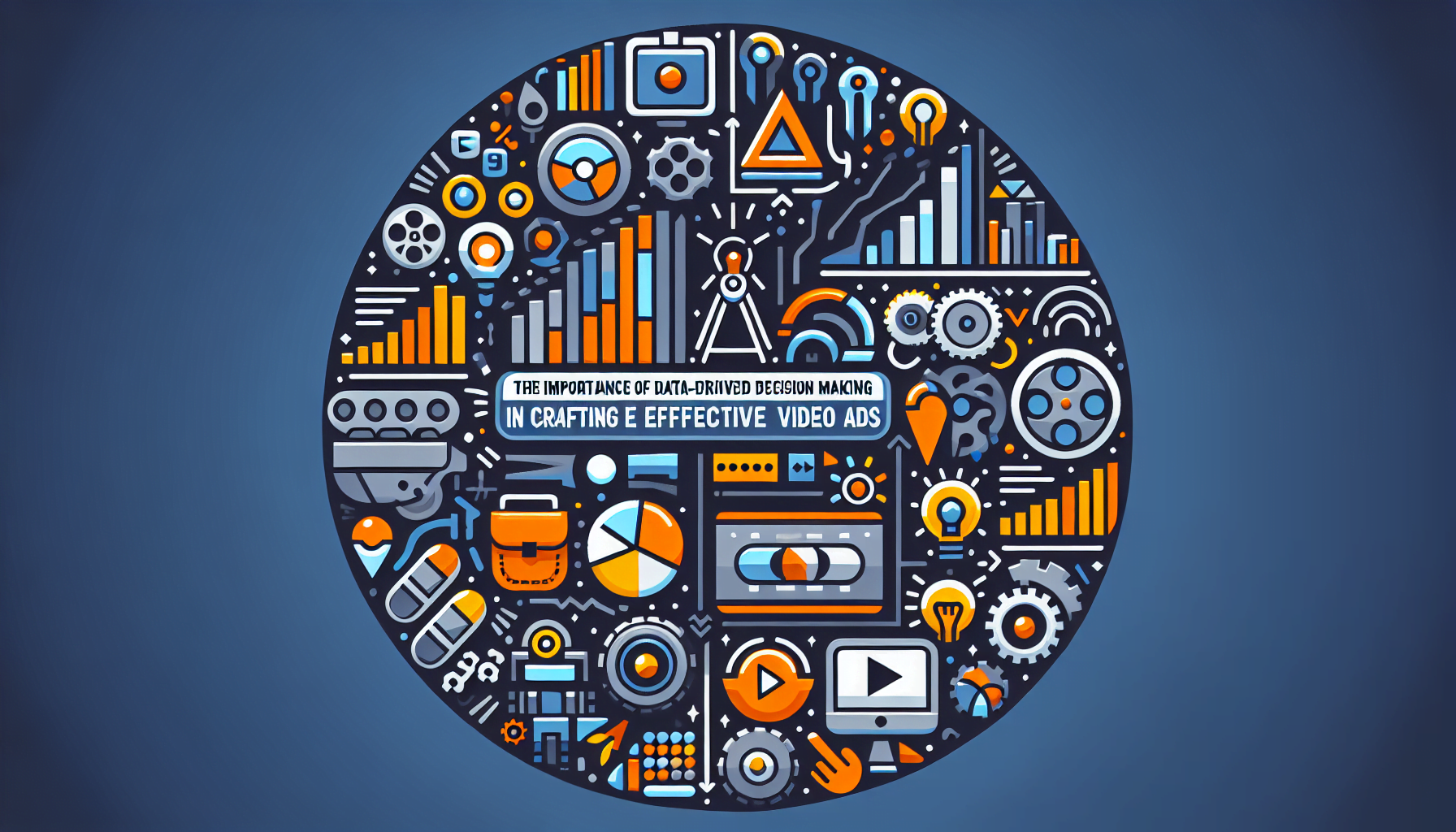In today’s rapidly evolving digital landscape, direct-to-consumer (DTC) businesses are increasingly leveraging artificial intelligence (AI) tools to gain a competitive edge. The combination of DTC and AI has proven to be a game-changer, revolutionizing the way businesses operate and interact with customers. This article aims to explore the various benefits of DTC AI tools and shed light on how they are transforming the business landscape.
Understanding DTC and AI Tools
DTC, or direct-to-consumer, refers to a business model where companies sell their products directly to consumers, bypassing traditional intermediaries. This approach allows businesses to have more control over the entire customer journey, from product design to delivery. On the other hand, AI tools encompass a wide range of technologies that simulate human intelligence to perform tasks more efficiently and accurately.
What is DTC?
DTC is a business model that has gained significant traction in recent years, driven by advancements in technology and changing consumer preferences. By eliminating intermediaries, DTC brands can offer their products at lower prices, provide a personalized customer experience, and gather valuable customer data.
When it comes to DTC, companies have the opportunity to build a direct relationship with their customers. This allows for better understanding of customer needs and preferences, leading to more targeted marketing and product development strategies. With the rise of e-commerce platforms and social media, DTC brands have been able to reach a wider audience and build a loyal customer base.
One of the key advantages of the DTC model is the ability to offer products at lower prices. By cutting out the middlemen, companies can reduce costs associated with distribution, marketing, and retail markup. This cost-saving can be passed on to the consumers, making products more affordable and accessible.
In addition to cost savings, DTC brands are able to provide a more personalized customer experience. With direct access to customer data, companies can tailor their marketing messages and product recommendations based on individual preferences. This level of personalization not only enhances the customer experience but also increases customer loyalty and repeat purchases.
The Evolution of AI Tools
AI tools have come a long way since their inception. The early stages of AI primarily focused on rule-based systems and automation. However, with the advancements in machine learning and deep learning algorithms, AI has become more sophisticated and capable of performing complex tasks such as natural language processing, image recognition, and predictive analytics.
Machine learning, a subset of AI, has revolutionized various industries by enabling computers to learn from data and improve their performance over time. This technology has been instrumental in developing AI tools that can analyze large datasets, detect patterns, and make predictions. For example, in the healthcare industry, AI tools are being used to analyze medical images and assist in diagnosing diseases with a high degree of accuracy.
Another significant development in AI is natural language processing (NLP), which allows computers to understand and interpret human language. NLP has paved the way for virtual assistants like Siri and Alexa, enabling users to interact with technology through voice commands. This technology has also been applied in chatbots, which can provide customer support and answer queries in a conversational manner.
Image recognition is another area where AI tools have made significant progress. Deep learning algorithms have made it possible for computers to accurately identify and classify objects in images. This technology has found applications in various fields, including self-driving cars, surveillance systems, and facial recognition software.
The Ongoing Evolution
Predictive analytics is yet another powerful application of AI tools. By analyzing historical data and identifying patterns, AI algorithms can make predictions about future outcomes. This has been particularly useful in areas such as sales forecasting, demand planning, and fraud detection.
As AI continues to evolve, we can expect even more sophisticated tools and applications to emerge. From autonomous robots to personalized medicine, AI has the potential to transform various industries and improve our lives in countless ways.
The Intersection of DTC and AI
At the intersection of DTC (Direct-to-Consumer) and AI (Artificial Intelligence) lies a world of possibilities. AI is transforming the way DTC businesses operate, enabling them to provide better customer experiences, improve business efficiency, and make data-driven decisions. This powerful combination has opened up new avenues for growth and innovation within the DTC industry.
AI, with its ability to analyze vast amounts of data and learn from patterns, has revolutionized the DTC landscape. It has become an integral part of many DTC businesses, helping them automate various processes and scale efficiently. One of the key areas where AI has made a significant impact is customer service.
How AI is Revolutionizing DTC
AI is revolutionizing DTC by automating various processes and enabling businesses to scale efficiently. Chatbots, for example, can handle customer inquiries and provide personalized recommendations, enhancing the overall customer experience. These AI-powered virtual assistants are available 24/7, providing instant responses to customer queries and ensuring a seamless interaction.
Moreover, AI-powered algorithms enable businesses to analyze vast amounts of customer data, uncover patterns, and generate valuable insights. This data-driven approach allows DTC companies to understand customer preferences, behavior, and purchasing patterns, enabling them to tailor their offerings accordingly. By leveraging AI, DTC businesses can deliver personalized experiences to each customer, fostering loyalty and driving sales.
Case Studies of Successful DTC AI Implementations
Several DTC brands have successfully implemented AI tools to drive growth and improve customer satisfaction. These case studies serve as inspirations for other businesses looking to leverage AI in their DTC strategies.
For instance, a well-known clothing brand has harnessed the power of AI algorithms to personalize product recommendations based on individual preferences. By analyzing customer data, including purchase history, browsing behavior, and demographic information, the brand’s AI system can suggest relevant products to each customer. This personalized approach has significantly increased customer engagement and drive sales for the brand.
Another example of successful AI implementation in the DTC space is an online grocery delivery service. This service has utilized AI-powered route optimization algorithms to streamline its delivery operations. By analyzing real-time traffic data, weather conditions, and customer locations, the AI system can optimize delivery routes, ensuring timely deliveries and minimizing transportation costs. This has not only improved operational efficiency but also enhanced the overall customer experience.
In conclusion, the intersection of DTC and AI is a realm of immense potential. AI has revolutionized the way DTC businesses operate, enabling them to provide better customer experiences, improve business efficiency, and make data-driven decisions. Through successful AI implementations, DTC brands have demonstrated the transformative power of AI in driving growth and improving customer satisfaction. As technology continues to advance, the possibilities for AI in the DTC industry are only bound to expand further.

Key Benefits of DTC AI Tools
Implementing AI tools in DTC businesses offers a multitude of benefits that can significantly impact the bottom line. In this expanded version, we will explore the key benefits in more detail.
Enhanced Customer Experience
AI-powered tools, such as chatbots and virtual assistants, can provide instant and personalized support to customers, improving the overall customer experience. These AI tools are designed to understand and respond to customer inquiries in a human-like manner, ensuring that customers feel heard and valued.
Furthermore, AI algorithms can analyze customer data to identify patterns and preferences, allowing businesses to tailor their offerings to individual customers. For example, an AI-powered recommendation engine can suggest products or services based on a customer’s browsing history, purchase behavior, and demographic information. This level of personalization enhances the customer experience by presenting relevant and appealing options.
Improved Business Efficiency
AI tools automate mundane tasks and streamline operations, freeing up valuable time for employees to focus on higher-value activities. For instance, AI-powered inventory management systems can automatically track stock levels, generate purchase orders, and optimize supply chain logistics. This automation reduces the risk of human error and ensures that businesses have the right products in stock at the right time.
Moreover, AI tools can assist with data analysis and reporting, enabling businesses to generate insights and reports faster and more accurately. This not only saves time but also improves decision-making by providing real-time information and actionable insights.
Data-Driven Decision Making
By leveraging AI algorithms, businesses can tap into vast amounts of data and extract actionable insights. AI tools can analyze customer behavior, market trends, and competitor activities to provide valuable information for decision-making.
For example, AI-powered marketing analytics platforms can analyze customer interactions across various channels, such as social media, email, and website visits. These platforms can identify trends, segment audiences, and predict customer behavior, enabling businesses to optimize marketing campaigns and target the right audience with personalized messages.
Furthermore, AI tools can help businesses identify new business opportunities by analyzing market data and consumer trends. By understanding market gaps and emerging trends, businesses can develop innovative products or services that meet customer needs and stay ahead of the competition.
In conclusion, implementing AI tools in DTC businesses offers enhanced customer experience, improved business efficiency, and data-driven decision-making capabilities. By leveraging AI algorithms and automation, businesses can unlock valuable insights, streamline operations, and deliver personalized experiences to their customers.
Challenges in Implementing DTC AI Tools
While the benefits of DTC AI tools are undeniable, there are several challenges that businesses need to overcome to fully embrace this transformative technology.
Data Privacy Concerns
Collecting and storing customer data raises concerns about data privacy and security. It is crucial for businesses to implement robust data protection measures and comply with relevant regulations to build trust with customers.
Technical Challenges and Solutions
Implementing AI tools requires technical expertise and infrastructure. Businesses must ensure they have access to the necessary computational resources and skilled professionals to successfully deploy and maintain AI systems. Collaborating with AI technology providers or hiring AI experts can help overcome these technical challenges.
The Future of DTC and AI
The future of DTC and AI is promising, with emerging trends and exciting possibilities on the horizon.
Emerging Trends in DTC AI
One emerging trend is the use of AI-powered recommendation engines that leverage customer data to provide personalized product recommendations across multiple touchpoints. Voice-activated assistants and smart devices also present new opportunities for DTC brands to engage with consumers in innovative ways.
Predictions for the Future of DTC AI Tools
In the coming years, DTC AI tools are expected to become even more advanced and integrated into various aspects of businesses. AI will continue to play a pivotal role in improving customer experiences, optimizing operations, and uncovering actionable insights from vast amounts of data.
In conclusion, DTC AI tools offer numerous benefits to businesses, allowing them to provide better customer experiences, improve efficiency, and make data-driven decisions. While there are challenges to overcome, the future looks promising for the intersection of DTC and AI. Embracing AI technologies can empower businesses to stay ahead of the competition and thrive in the ever-evolving digital landscape.




